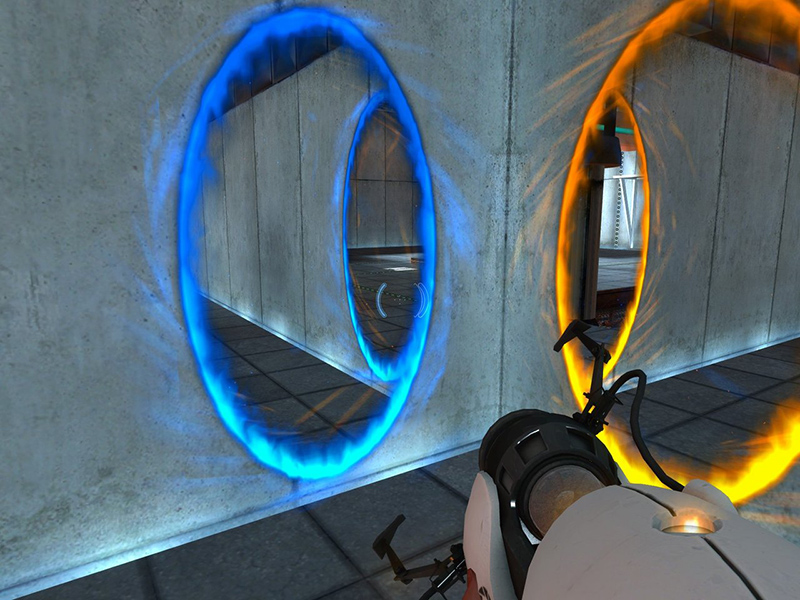Portal is a video game made by developer Valve, released in 2007. The basic premise of Portal is you are trapped in a science laboratory with a fictional device that can create a pair of portals that you can travel through. As great as that sounds, there are some strings attached:
- Your gun only can shoot one blue portal and one orange portal.
- You cannot place a portal on top of a previously existing portal.
- Momentum and other laws of physics are conserved between portals.
The greatest aspect of Portal is not just the concept that it is built around; Portal is a first-person puzzle game. Interestingly enough, the unusual combination of the first-person point of view and the puzzle game genre work extremely well. The player is thrown into a crazy fictional world where experimenting and testing is the sole purpose of the science facility you are trapped in. The game has its rules and limitations, and the portals are used as the main game mechanic (along with other puzzle elements.) And ultimately, each level in Portal has a primary objective to get from the entrance of the puzzle, conquer the obstacles, and ultimately get to the exit point (to get to point A to point B, using portals.)
Check out some gameplay footage -
Check out some gameplay footage -
Your character in the game is guided by a feminine, robotic being that is named GLaDOS (Genetic Life and Disk Operating System) whose character is defined by her subtextual dialogue. GLaDOS is the main antagonist of the game. She is very passive-aggressive, witty, and sinister. She is considered to be somewhat insane. The game begins with her voice over an intercom, telling you where to go & what to do. This gives the player a sense of misdirection, where the player trusts the voice that is speaking over the intercom throughout the game. It isn't until the plot twist in the game where (spoilers!) the conveyor belt you are stuck on is slowly moving in a dead end into a furnace where GLaDOS wants you to die.
Portal is one of the most artistically advanced video games in existence. There is so many contextual, subconscious hints that urge the player to hypothetically question the advances of the human race. Why is the player trapped in a science testing chamber? Is artificial intelligence going to experience emotions like GLaDOS does? The plot of Portal creates tension and release throughout the game; when the player jumps through their own pair of portals for the very first time, it builds tension as you fall closer and closer to your portal. Then, as you exit through it, the tension is released when the player makes it through their portals safely.
Endearing, entertaining, and inciting, Portal is truly a remarkable form of art and media.

No comments:
Post a Comment